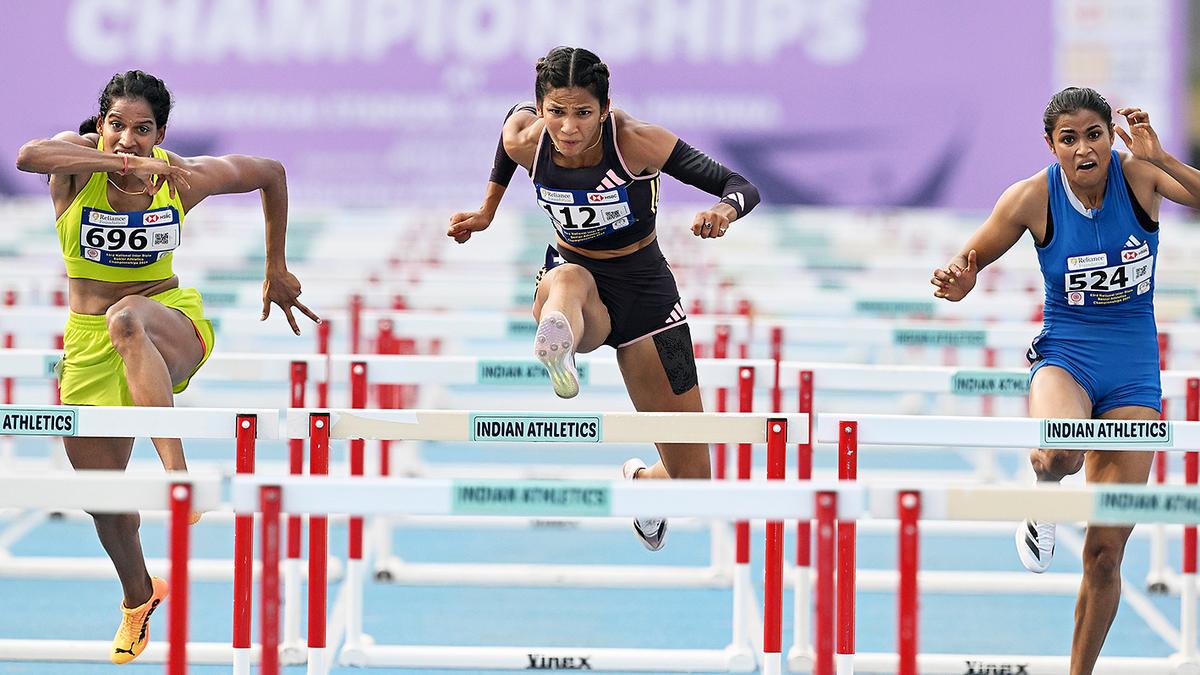A greying world has meant a new focus on living longer and healthier. A look at how science and money are coming together in the quest for immortality
The pursuit of ‘forever young’ has never been more popular with people throwing everything at the ticking clock — from ozone therapy and fasting regimens to cold plunges and collagen powder, celery juice to supergummies — whether science backs it or not.But can there really be a cheat code to dodge ageing and death? Turns out, the answer doesn’t matter because people are not going to give up trying.
Scientists are bringing their big brains, while tech billionaires — after shaping the cars people drive to the phones they use — are throwing big bucks at projects that could hack the age code and keep the good times rolling a bit longer. According to one estimate, the longevity market is expected to be worth $44 billion by 2030.
Some of these ultra-wealthy longevity evangelists include the likes of Amazon’s Jeff Bezos, Alphabet’s Larry Page, OpenAI’s Sam Altman, Oracle’s Larry Ellison, and Paypal’s Peter Thiel who are investing in slowing ageing at a cellular level. Others like Google cofounder Sergey Brin and Sean Parker, co-founder of Napster, and later, Facebook’s first president — are funnelling their dollars into developing revolutionary immune therapies for diseases like cancer and Parkinson’s. Then there are those like Bryan Johnson investing in nutrition, exercise and wellness plans that could break the status quo of the typical ageing process.
But using tech and science to outsmart death is no longer just a Silicon Valley obsession. Even in India, where it is considered a luxury to grow old, there is new interest in longevity research. Last month, AIIMS’ geriatric medicine department launched Project Longevity to identify the mechanisms of ageing and ageing patterns in multiple generations within a single family. The project, funded by the Indian Council of Medical Research, will last for 36 months. In dian Institute of Science (IISc) in Bengaluru launched a Longevity India initiative in April to study the mysteries of ageing. The project will explore factors such as genetics, environment, lifestyle, and culture to develop ways to improve the ‘health span’ — the length of time a person remains healthy, not just alive — of Indians.
“It was high time we did,” says Deepak Saini, convenor of the Longevity India initiative and professor of Developmental Biology and Genetics at IISc. “Unlike the rest of the world, ageing was never a focus for India for the longest time. Our primary health concerns were related to poor nutrition and hygiene. Ageing was considered inevitable, and the common attitude was ‘So what, everyone gets old’.”
However, times have changed with better sanitation, vaccines, antibiotics and other medical advances. “We’ve learned to tackle many diseases that cause early death, so now ageing is the next big challenge,” says Saini.
The project is currently in its first phase, and the team is doing a large-scale clinical study involving people from a wide range of disciplines, such as clinicians, bioengineers, data scientists, mathematicians, physicists, and others. “We aim to sample 2,000 Indians who are 18 and above over the next two years at various scales to identify biomarkers and organ specific signatures of ageing in Indians,” Saini says, adding that this discovery stage also involves challenging western knowledge and grasp how ageing uniquely affects Indians. “For example, West sees high cholesterol as a problem. But if we use their standards, most Indians would be considered unhealthy because we typically have high cholesterol. Similarly, low vitamin D levels are common among Indians. Is that pathological or just part of our biology? And should we medicate like they do? These are crucial questions,” Saini points out.
The Longevity India project has received initial funding from Prashanth Prakash, founding partner, Accel India with interest from individuals, companies as part of their CSR donations and lifestyle and healthcare chains. “To truly do justice to the project and ensure it achieves its intent, we’re looking at anything upwards of Rs 100 crore to keep operations running successfully,” says Saini.
So, what’s the plan? “Once we’ve identified the markers, the next step is to develop cost-effective tests. Creating these panels of tests will enable clinicians to predict a person’s health, prescribe maintenance protocols and keep them out of hospital.”
And while finances are crucial, the real investment needed, he says, is time and patience. “This isn’t like developing an app where you research today and launch tomorrow. Biological research takes time, and even longer in a physiological context.”
At the same time, a shift towards prevention rather than waiting for the wealthy to hack ageing is what cancer surgeon-turned-longevity expert Dr Peter Attia, who recently authored the bestselling ‘Outlive’, advocates. “We already have the tools,” he had told TOI in an earlier interview.
“Currently, virtually all investments in this problem focus on molecules, which I believe only represent a fraction of the tools we have at our disposal to live longer — and more importantly, better — lives,” says Attia, whose age-defying prescriptions seem rather simple. Walk, work out, eat healthy, get a good night’s sleep, and maintain social relationships if people “want to be able to hike a mile and a half, or carry their own groceries, or pick up a great-grandchild, or get up if they fall down.”
Ageing doesn’t have to follow the clock, points out Saini. “Haven’t you met people who look much older than their years? They may attribute it to a medical episode, infection, disease, or a surgical procedure but it all comes down to the way we use or misuse our bodies over time. It changes the rate at which ageing creeps in,” he says. “See, genetics is something that’s hardwired into your cells. But the physiological code changes daily based on how you eat, sleep, or handle stress. That’s what we’re trying to tackle.”
People indeed are already ditching bar-hopping foreign holidays for ‘longevity vacations’ at upscale ‘anti-ageing’ centres cropping up from Hawaii and British Columbia to Spain and Greece. These retreats come at a hefty price tag — $1,000 to $100,000 for a program — mostly accessible to the rich who would rather spend it on a few days of slow hiking, forest bathing, taking IV drips and listening to the sound of crystal singing-bowls than heady jaunts that might just fast forward their clock.
IISc’s longevity mission, however, is to make sure everyone gets a shot at a longer, healthier life, not just a privileged few. “The motto of IISc is to reach out to the masses so a lot of our data findings are going to be in the public domain and accessible to anyone who wants to make use of the knowledge we’ve generated. The idea is to decentralise the information for everyone’s benefit.”
Conversations from a small opinion campaign that the longevity team conducted made one thing clear. “Most people aren’t obsessed with living forever. They want to live healthier,” explains Saini. “However, there were a few ‘oddballs’ who expressed a desire for immortality.”
The current cap on human lifespan is 122 years — that’s the age at which the world’s longest living person died. So, could one live that long if everything falls into place — groundbreaking science to lifestyle changes? “No, because everyone’s lifespan is influenced by various factors,” Saini says.
And while some superagers may have lucked out genetically, the focus of India’s longevity project is obvious: “To help people achieve their potential lifespan in as healthy a shape as possible. It’s not just about living longer but about living healthier,” he says, quoting a dialogue from the movie ‘Anand’ where Rajesh Khanna’s terminally ill character had famously said: ‘Zindagi badi honi chahiye, lambi nahi,’ (life should be grand, not long).
The pursuit of ‘forever young’ has never been more popular with people throwing everything at the ticking clock — from ozone therapy and fasting regimens to cold plunges and collagen powder, celery juice to supergummies — whether science backs it or not.But can there really be a cheat code to dodge ageing and death? Turns out, the answer doesn’t matter because people are not going to give up trying.
Scientists are bringing their big brains, while tech billionaires — after shaping the cars people drive to the phones they use — are throwing big bucks at projects that could hack the age code and keep the good times rolling a bit longer. According to one estimate, the longevity market is expected to be worth $44 billion by 2030.
Some of these ultra-wealthy longevity evangelists include the likes of Amazon’s Jeff Bezos, Alphabet’s Larry Page, OpenAI’s Sam Altman, Oracle’s Larry Ellison, and Paypal’s Peter Thiel who are investing in slowing ageing at a cellular level. Others like Google cofounder Sergey Brin and Sean Parker, co-founder of Napster, and later, Facebook’s first president — are funnelling their dollars into developing revolutionary immune therapies for diseases like cancer and Parkinson’s. Then there are those like Bryan Johnson investing in nutrition, exercise and wellness plans that could break the status quo of the typical ageing process.
But using tech and science to outsmart death is no longer just a Silicon Valley obsession. Even in India, where it is considered a luxury to grow old, there is new interest in longevity research. Last month, AIIMS’ geriatric medicine department launched Project Longevity to identify the mechanisms of ageing and ageing patterns in multiple generations within a single family. The project, funded by the Indian Council of Medical Research, will last for 36 months. In dian Institute of Science (IISc) in Bengaluru launched a Longevity India initiative in April to study the mysteries of ageing. The project will explore factors such as genetics, environment, lifestyle, and culture to develop ways to improve the ‘health span’ — the length of time a person remains healthy, not just alive — of Indians.
“It was high time we did,” says Deepak Saini, convenor of the Longevity India initiative and professor of Developmental Biology and Genetics at IISc. “Unlike the rest of the world, ageing was never a focus for India for the longest time. Our primary health concerns were related to poor nutrition and hygiene. Ageing was considered inevitable, and the common attitude was ‘So what, everyone gets old’.”
However, times have changed with better sanitation, vaccines, antibiotics and other medical advances. “We’ve learned to tackle many diseases that cause early death, so now ageing is the next big challenge,” says Saini.
The project is currently in its first phase, and the team is doing a large-scale clinical study involving people from a wide range of disciplines, such as clinicians, bioengineers, data scientists, mathematicians, physicists, and others. “We aim to sample 2,000 Indians who are 18 and above over the next two years at various scales to identify biomarkers and organ specific signatures of ageing in Indians,” Saini says, adding that this discovery stage also involves challenging western knowledge and grasp how ageing uniquely affects Indians. “For example, West sees high cholesterol as a problem. But if we use their standards, most Indians would be considered unhealthy because we typically have high cholesterol. Similarly, low vitamin D levels are common among Indians. Is that pathological or just part of our biology? And should we medicate like they do? These are crucial questions,” Saini points out.
The Longevity India project has received initial funding from Prashanth Prakash, founding partner, Accel India with interest from individuals, companies as part of their CSR donations and lifestyle and healthcare chains. “To truly do justice to the project and ensure it achieves its intent, we’re looking at anything upwards of Rs 100 crore to keep operations running successfully,” says Saini.
So, what’s the plan? “Once we’ve identified the markers, the next step is to develop cost-effective tests. Creating these panels of tests will enable clinicians to predict a person’s health, prescribe maintenance protocols and keep them out of hospital.”
And while finances are crucial, the real investment needed, he says, is time and patience. “This isn’t like developing an app where you research today and launch tomorrow. Biological research takes time, and even longer in a physiological context.”
At the same time, a shift towards prevention rather than waiting for the wealthy to hack ageing is what cancer surgeon-turned-longevity expert Dr Peter Attia, who recently authored the bestselling ‘Outlive’, advocates. “We already have the tools,” he had told TOI in an earlier interview.
“Currently, virtually all investments in this problem focus on molecules, which I believe only represent a fraction of the tools we have at our disposal to live longer — and more importantly, better — lives,” says Attia, whose age-defying prescriptions seem rather simple. Walk, work out, eat healthy, get a good night’s sleep, and maintain social relationships if people “want to be able to hike a mile and a half, or carry their own groceries, or pick up a great-grandchild, or get up if they fall down.”
Ageing doesn’t have to follow the clock, points out Saini. “Haven’t you met people who look much older than their years? They may attribute it to a medical episode, infection, disease, or a surgical procedure but it all comes down to the way we use or misuse our bodies over time. It changes the rate at which ageing creeps in,” he says. “See, genetics is something that’s hardwired into your cells. But the physiological code changes daily based on how you eat, sleep, or handle stress. That’s what we’re trying to tackle.”
People indeed are already ditching bar-hopping foreign holidays for ‘longevity vacations’ at upscale ‘anti-ageing’ centres cropping up from Hawaii and British Columbia to Spain and Greece. These retreats come at a hefty price tag — $1,000 to $100,000 for a program — mostly accessible to the rich who would rather spend it on a few days of slow hiking, forest bathing, taking IV drips and listening to the sound of crystal singing-bowls than heady jaunts that might just fast forward their clock.
IISc’s longevity mission, however, is to make sure everyone gets a shot at a longer, healthier life, not just a privileged few. “The motto of IISc is to reach out to the masses so a lot of our data findings are going to be in the public domain and accessible to anyone who wants to make use of the knowledge we’ve generated. The idea is to decentralise the information for everyone’s benefit.”
Conversations from a small opinion campaign that the longevity team conducted made one thing clear. “Most people aren’t obsessed with living forever. They want to live healthier,” explains Saini. “However, there were a few ‘oddballs’ who expressed a desire for immortality.”
The current cap on human lifespan is 122 years — that’s the age at which the world’s longest living person died. So, could one live that long if everything falls into place — groundbreaking science to lifestyle changes? “No, because everyone’s lifespan is influenced by various factors,” Saini says.
And while some superagers may have lucked out genetically, the focus of India’s longevity project is obvious: “To help people achieve their potential lifespan in as healthy a shape as possible. It’s not just about living longer but about living healthier,” he says, quoting a dialogue from the movie ‘Anand’ where Rajesh Khanna’s terminally ill character had famously said: ‘Zindagi badi honi chahiye, lambi nahi,’ (life should be grand, not long).






